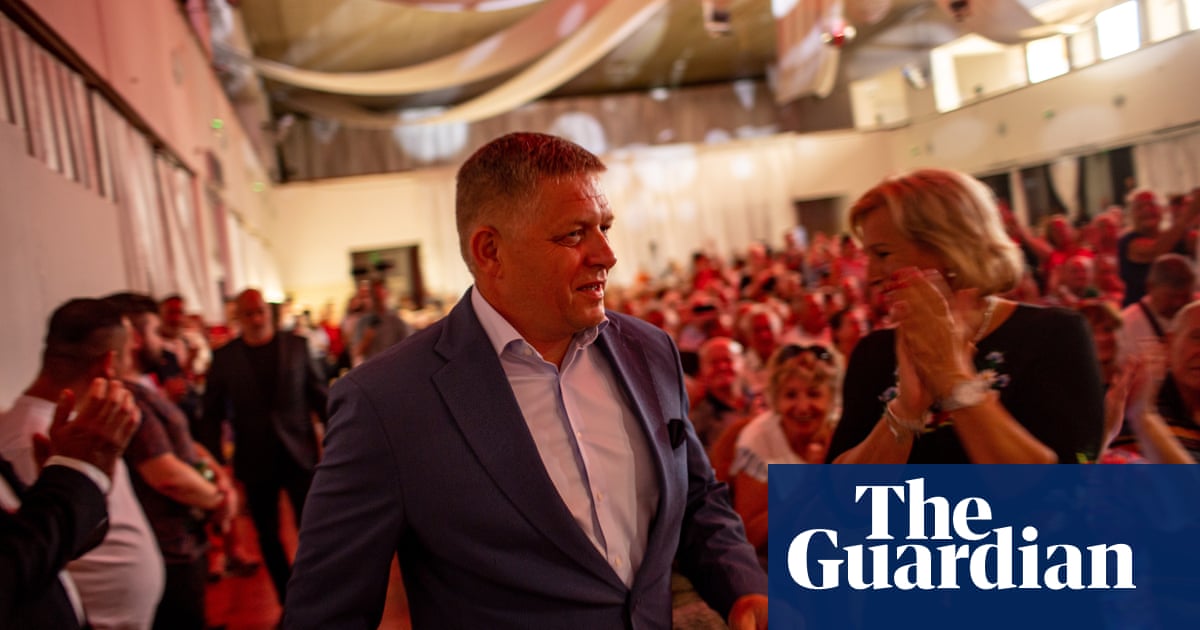
Venezuela’s future was on a knife-edge on Sunday night after millions of voters headed to the polls to choose a new president and potentially end 25 years of socialist rule amid a historic economic and humanitarian meltdown.
A quarter of a century after the paratrooper turned left-wing icon Hugo Chávez was democratically elected in 1998, opinion polls suggested the comandante’s strongman successor, Nicolás Maduro, was facing possible defeat after presiding over one of the worst peacetime economic collapses in modern history.
As polls closed on Sunday evening Jorge Rodríguez, a top Chavista politician, told reporters in the capital Caracas that he was confident Maduro would be returned to power for his third six-year term. “The voice of the people has spoken,” Rodríguez said, predicting that his camp had secured “a great victory”.
But there was similar confidence from allies of Maduro’s rival for the presidency, an until recently little-known ex-diplomat called Edmundo González Urrutia. González is supported by the prominent conservative congresswoman María Corina Machado, whose place he took after she was banned from running.
“We are going to celebrate in peace,” González told journalists as citizens of the oil-rich South American country waited anxiously for results.
Earlier in the day, the 74-year-old grandfather and former ambassador sent a video message to supporters urging them to vote. “Today is the day. Today is your day,” González told them.
In an interview with the BBC on the eve of the hotly awaited election, Machado claimed the oil-rich South American country was approaching a “huge, unique, epic event that will change not only the history of Venezuela but also the whole region”.
“The system is cracking for the first time in 25 years,” Machado claimed of Chavismo, predicting a “huge, historic turnout” that would sweep Maduro from power.
Throughout the day opposition voters turned out in large numbers across the country hoping to vote Maduro – who they blame for leading Venezuela into a crippling economic and social crisis – out of power.
“I voted for Edmundo González because I believe he is the only hope of change that we have here,” said Anabella Donzella, a 23-year-old economics student as she cast her vote in El Marqués, a middle-class area in Caracas.
Donzella and her sister, Sofía, said they had made their choice because they feared being forced to abandon their country, as nearly eight million Venezuelans have done since Maduro was narrowly elected in 2013 and a punishing economic crisis began to accelerate.
“I’m here because it’s my right and I don’t want to end up stuck with the thought that I did nothing,” said Sofía Donzella, 27, admitting she was sceptical that change could really be achieved, amid widespread fears Maduro’s administration would refuse to relinquish power and concerns over whether the vote would be free and fair.
José Martínez, a 23-year-old shoe shop caretaker from the working-class neighbourhood of Petare, said he was voting for Maduro. “I served [in the army] and during that time the president helped me a lot. He helped my family and I cannot let him die,” Martínez said.
Maduro, who was elected after Chávez’s premature death from cancer and returned to office in a widely criticized 2018 election boycotted by the opposition, voiced confidence as he visited his late leader’s tomb in Caracas to lay a wreath before dawn on Sunday.
Wearing a pink guayabera and flanked by the first lady, Cilia Flores, Maduro compared the election – which was timed to coincide with what would have been Chávez’s 70th birthday – to one of the most famous military showdowns in Venezuela’s struggle for independence from Spain. “This is our Battle of Carabobo and we are heading straight for victory,” he declared, dedicating his campaign to Chávez, under whom he served as foreign minister and vice-president. “This victory is yours, comandante!” Maduro added on X.
A few hours later, after voting, Maduro addressed reporters wearing a tracksuit top stamped with the colours of the country critics accuse him of destroying. “I am certain that everything will work out well and that tomorrow will be a beautiful day,” the 61-year-old said.
But there was tension and nervousness on Sunday night as citizens waited for an official announcement about the vote from the pro-Maduro election authority. It was not clear when those results will be announced.
In a joint statement, the foreign ministers of Argentina, Costa Rica, the Dominican Republic, Ecuador, Panama, Paraguay, Peru and Uruguay said they were closely following events in Venezuela and believed it was crucial that the results represented the popular will of Venezuelan voters.
The US vice-president Kamala Harris tweeted: “The United States stands with the people of Venezuela who expressed their voice in today’s historic presidential election. The will of the Venezuelan people must be respected.”












